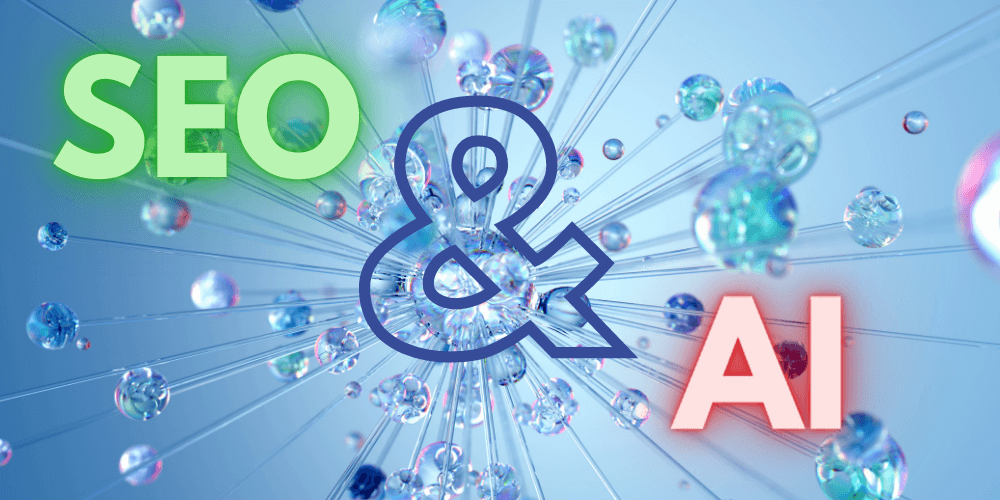The search marketplace has long played host to a race between results quality and mass producers of dubious-value content. Google, Bing, and other less prominent engines have constantly worked to relegate or penalize low-quality material designed purely for rankings rather than genuine user value, while at the same time rewarding content that passes their quality-evaluation algorithms.
For the last few years, it’s looked like the engines have decisively won the battle. Primitive machine-generated content seldom got past the spam filters, and low-grade, cheaply sourced boilerplate material rarely generated significant rankings or useful traffic. High-quality, human-written content ruled the roost for publishers who wanted to enjoy great rankings and the traffic they bring.
But recent tech developments are threatening that cozy, settled picture. The emergence of artificial intelligence software that can generate high-quality, seemingly human-written content has huge implications for the search industry – and therefore for content marketers, writers, and anyone else with skin in the search results game.
How AI-Generated Content Impacts Search Results
The recent buzz around ChatGPT and other artificial intelligence (AI) tools has focused on how easy it’s become to generate reams of seemingly high-quality content at the press of a key. Much has been made about the implications for writers and marketers: who needs the cost and complications of human creativity when machines can generate such elegant text so easily?
But current developments at Microsoft’s Bing show another side to the AI-generated content coin. The search engine has recently incorporated the latest version of the ChatGPT technology into its results, delivering a step change in quality. Searches involving complex language and ideas can now return answers that superficially resemble what a human researcher could provide, as the AI scours its database for relevant information and repackages it into a coherent, in-depth, but entirely machine-written reply.
What’s more, the version of ChatGPT that powers these new results is more current and accurate than the previously accessible public offering, making Bing’s results more up-to-date and comprehensive as well as highly readable.
At this point, Bing is firmly a second-tier search engine, hovering around the low single digits in market share percentage. But with Microsoft having lit the fuse with superior AI-generated results, Google has been forced to follow if it wants to protect its overwhelming industry dominance. And because of that same dominance, the direction Google takes is hugely important to content marketers who want to enjoy future rankings and traffic.
The company has already begun to incorporate AI-generated content into its search results, using a proprietary AI bot named Bard. But as recent events have shown, the factual accuracy of Google’s software can leave plenty to be desired. The first public demonstration of the service returned an easily disproved ‘fact’ about the discoveries of the James Webb telescope, leading to much embarrassment on Google’s behalf – as well as a share price pummeling that wiped an estimated $150bn off the parent company’s value.
But there’s little reason to think Google will be left behind for long given its history of rapid tech development. It seems certain that the search engine’s results will evolve to contain more and more Artificial Intelligence-generated content, which could sound alarm bells for publishers who’d rather have their own carefully crafted content topping the rankings.
Could Content Marketers and Writers Harness AI-Generated Content?
Whichever way the situation develops, successful content marketers will need to adapt and make the most of the new opportunities that will undoubtedly appear. One of the first avenues to explore could involve fighting fire with fire.
If the engines serve up Artificial Intelligence-generated content, is the door now open for publishers to do the same? Could writers simplify their professional lives by using copious amounts of AI text as the basis of their own work?
Until now, the answer to both questions was an emphatic no, at least if you wanted your content to rank highly in the search results. Google’s longstanding dislike of low-quality, spammy web pages means that most machine-generated text fails to make the ranking grade. Indeed, previous web publisher guidelines specifically warned against using auto-generated content of any kind, with severe penalties the inevitable result for any artificial text that was detected.
However, the search giant’s advice has now changed in a subtle but crucial way. Rather than outlawing any auto-generated material, Google’s latest guidelines only state that there’s a problem with content that’s generated specifically “to manipulate search rankings” rather than to be consumed by humans.
In an even clearer shift, the target is now “spammy” auto-generated content that fails crucial quality tests, and that was developed to provide food for search engine spiders but little or no value for searchers themselves. Google representative Danny Sullivan has stated that the issue is quality and usefulness, with poor content frowned upon whether it was produced in bulk by low-skilled writers, generated by old-fashioned cookie-cutter techniques, or created by the latest in AI technology.
The clear implication is that AI-generated content won’t be an issue if it serves the searcher’s needs by being accurate, well-written, and providing a useful answer to the query. So long as the content makes Google’s results look good, the source of the text now appears to be irrelevant.
At the same time, greater integration of AI tech into the engines means that keyword-laden, mass-produced AI-generated content will be easier to detect and penalize, and conversely, premium-quality content will continue to rank well however it was created.
The Upshot for Content Marketers and Writers
It’s clear that AI-generated writing isn’t going to depart the scene anytime soon. It’s simply too good and too cost-effective for content-hungry marketers and search engines to ignore. That said, while the technology is already highly impressive, it still has major issues to solve. As Google’s expensive public embarrassment has shown, AI bots still can’t be relied on for factual accuracy.
Just as important from a marketer’s perspective, bots can’t intentionally generate the emotional appeal that’s so vital for engaging human readers and turning them into customers. Premium, human-written content still has a strong edge, at least at this point in AI-generated content tools’ development.
So bearing the AI future in mind, the essential task for writers and marketers is to integrate these new technologies into their workflows. AI could augment existing tools and techniques to speed up research and streamline the initial creation process before real writers add the essential human touch to take the raw AI-generated content to a new level. Without that final step of human review and enhancement, even the best AI output will likely remain filler material rather than a driver of conversions or a generator of loyal returning readers.
Viewed from this perspective, Artificial Intelligence-generated content could turn out to be an invaluable tool for marketers and writers rather than an adversary to be feared. When properly integrated into the human-led content creation process, artificial intelligence could ultimately make it easier, quicker, and less costly to publish compelling writing on any topic, while at the same time passing the search engines’ quality tests to achieve lucrative rankings.
And whether you’re a marketer, a writer, a publisher, or anyone else who works with content, that prospect should be very welcome.
Images by Unslash
This content was originally published here.




